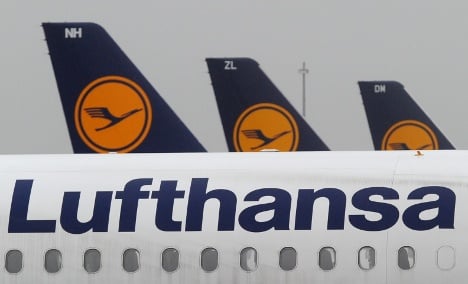Lufthansa announced it would buy eight long-haul aircraft and 100 short- and medium-haul aircraft from Airbus and Boeing. The purchases still have to be approved by the supervisory board, while delivery is scheduled for between 2015 and 2025, the airline said in a statement.
That brings the total number of new aircraft that Lufthansa has ordered until the end of 2025, to 239 for a total price of €23 billion, which the carrier will pay for in cash and via loans.
Given the magnitude of the investments, Lufthansa announced it would eliminate a shareholder dividend payment for 2012 and fully retain its net profit.
“Our aim is to allow our shareholders to participate sustainably in the group’s future success. It is now all the more important to invest all available resources in the group in order to drive the future (investment) programme forward,” said chief executive Christoph Franz.
“The group net profit will consequently be retained in full for the purpose of strengthening equity capital,” he added.
In order to achieve this, Lufthansa has embarked on a massive cost-cutting and earnings improvement programme in order to lift operating profit by €1.5 billion by 2015.
As part of the scheme, the airline is planning to shut down a number of its administrative sites, including its head office in Cologne, it said. An accounting unit in Norderstedt near Hamburg will also close. Some 700 jobs will be cut in Germany and moved abroad.
Lufthansa said it flew back into the black last year, turning in net profit of €990 million compared with a loss of €13 million a year before.
But airline noted that its bottom line had been inflated by windfall gains from the sale of a number of investments.
Underlying or operating profit – which included €160 million in restructuring costs – fell by 36.1 percent to €524 million. Revenues, on the other hand, grew by 4.9 percent to €30.1 billion, Lufthansa said.
“Profitability for an airline is not simply a given in the present industry environment, it is a good performance,” Franz insisted. But he insisted Lufthansa “needs to perform even better.”
AFP/DPA/The Local/mry



 Please whitelist us to continue reading.
Please whitelist us to continue reading.
Member comments